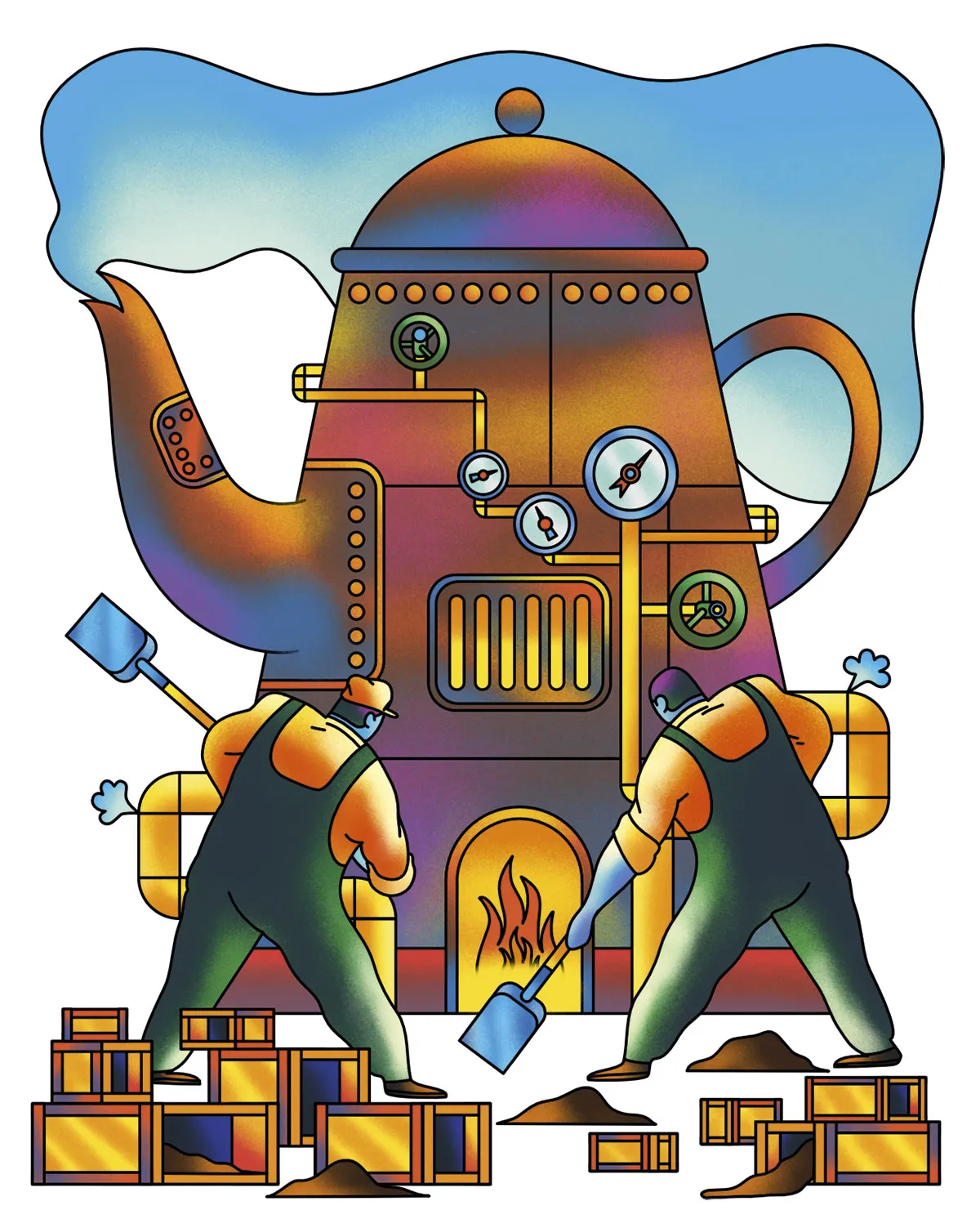In 1942, in the midst of WWII, the British government procured what you might expect: bullets, artillery shells, bombs. These were the ingredients for battle, purchased to protect the population from physical harm.
But they were also thinking about hearts and minds – the other battle on the home front – and what they needed to do to ensure that the country had the resilience to keep calm and carry on. So to tackle that psychological battle, they bought all the tea in the world. And by golly, we won.
It makes sense from an emotional level. Tea is a crucial symbol for the nation. It’s the great caffeinator, the morale booster, more powerful than ammunition (so said Winston Churchill).
And yet, it is a precarious property. Not nearly enough tea is grown in-country to warrant our obsession, yet even coffee drinkers rely upon it being on the shelves to prove to ourselves that everything’s going to be just fine. It isn’t only symbolic because it’s been brought in to get us through wars, but because it is the clearest evidence that Britain is connected with the rest of the world. After all, we need to have good relationships with everyone else to get enough of the stuff into our teapots.
Ensuring tea was on our shelves during the darkest days of WWII meant making diplomatic decisions, and not just about wartime budgets – although one estimate has tea as the second highest spend during 1942. It meant keeping the workers in Assam safe, the US on side to deliver the goods using their ships, and the Chinese in silver (and, unfortunately, opium).
The result was that Britons, wherever they were, got their cups of tea and everyone felt things were going to be okay.

Fast forward to now, a different diplomatic era, and images on social media of high street supermarket chains’ empty tea shelves are spreading symbolic messages to a country battered by multiple theatres of ‘war’.
There are likely many practical and political factors contributing to this, but for me the most important part is what impact it has on the British psyche. The issue is clearly at the forefront of the supermarkets’ minds too; in many cases they’ve hidden the lack of consumables with cutouts of boxes, or jolly slogans that try to brush off the ‘end is nigh’ feeling that might cause riots on the streets and in the toilet paper aisle. Which, given the overall tension, we are likely to do.
But the problem is that almost 80 years since the government trawled the globe for tea leaves, it is a fragile litmus test for the country’s wellbeing. Having tea in the pot relies on our relationships with other countries. It requires supply chains that work.
It leans too heavily on imaginings of Empire glory, and trade negotiations that have been usurped by beliefs of self-sufficiency. The symbolism behind the resilience of a nice cuppa is now that the British identity requires a transformation, and (to borrow from the French) tout suite.
What could replace tea as the national foodstuff? Is there something homegrown and sustainable that the UK could align itself with? There’s only one thing to do to solve this puzzle: sit down with a nice cuppa and a biscuit to worry this out.
- This article first appeared inissue 368ofBBC Science Focus Magazine–find out how to subscribe here
Read more from Aleks Krotoski:
